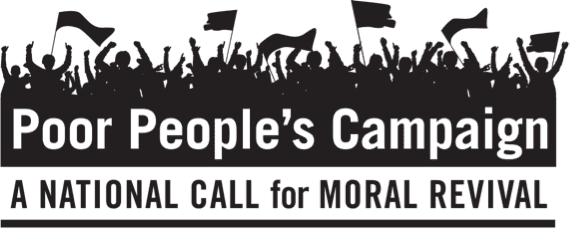In a previous email this week, the WVCBP staff and board released our statement to express our commitment our solidarity to those fighting for racial justice.
Our conclusion stated that we stand in solidarity with Black-led organizations across our state including Our Future WV, CARE, NAACP, Black Lives Matter WV, and the Partnership for African American Churches. We will continue to follow the leadership of these groups to guide our research and policy agenda in this space and reaffirm our commitment to serve as allies in the fight for racial equity and justice alongside them.
We wanted to share some resources and information with our readers. This week the WVCBP donated to The Bail Project, a nonprofit organization “designed to combat mass incarceration by disrupting the money bail system, one person at a time.”
Here’s why we think supporting this organization is a good charitable investment: “The Bail Project is a national nonprofit organization that pays bail for people in need, reuniting families and restoring the presumption of innocence. Because bail is returned at the end of a case, donations to The Bail Project can be recycled and reused to pay bail two to three times per year, maximizing the impact of every dollar.”
Here is more from Civil Eats, a group that believes food justice is racial justice, and its recommendations of organizations to support to further that mission.
Here is an article in The Week which provides some alternatives to policing that have been adopted in Nordic countries.
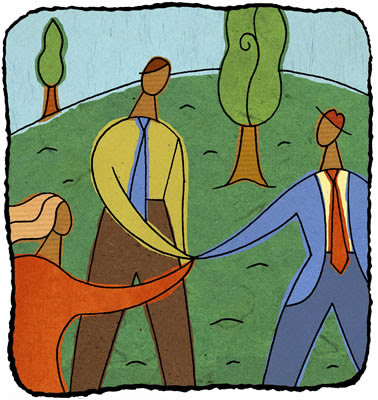
Our partners at the Economic Policy Institute released a report this week that puts data and research behind the impacts of the pandemic on Black and Brown populations.
From the report: “‘We’re all in this together’ has become a rallying cry during the coronavirus pandemic. While it is true that COVID-19 has affected everyone in some way, the magnitude and nature of the impact has been anything but universal. Evidence to date suggests that Black and Hispanic workers face much more economic and health insecurity from COVID-19 than white workers.
“Although the current strain of the coronavirus is one that humans have never experienced before, the disparate racial impact of the virus is deeply rooted in historic and ongoing social and economic injustices. Persistent racial disparities in health status, access to health care, wealth, employment, wages, housing, income, and poverty all contribute to greater susceptibility to the virus-both economically and physically.”
Read the full report here.
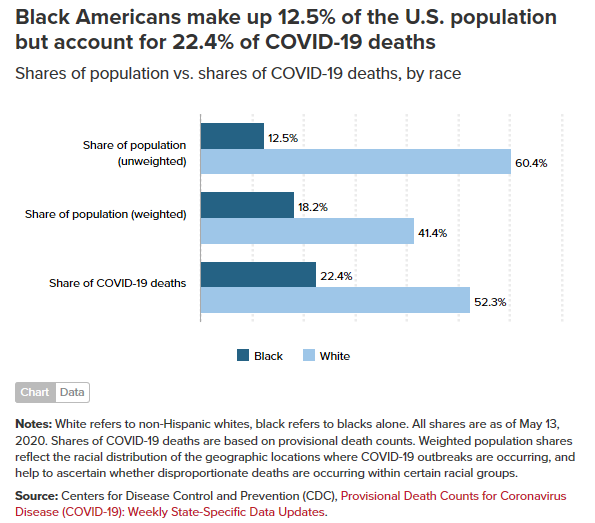
April was one of the ugliest months for jobs and the economy in history, both nationally and here in West Virginia. The national unemployment rate increased by 10.3 percentage points, with all 50 states experiencing an increase. West Virginia’s unemployment rate rose to 15.3%, while the state lost over 90,000 jobs.
Yet despite the fact that over 117,100 West Virginians were out of work in April, Governor Justice has remarked that state revenue collections in May are better than expected, and that the state may be facing a significantly smaller budget gap for FY 2020 than originally feared.
Read more in Sean’s blog post.
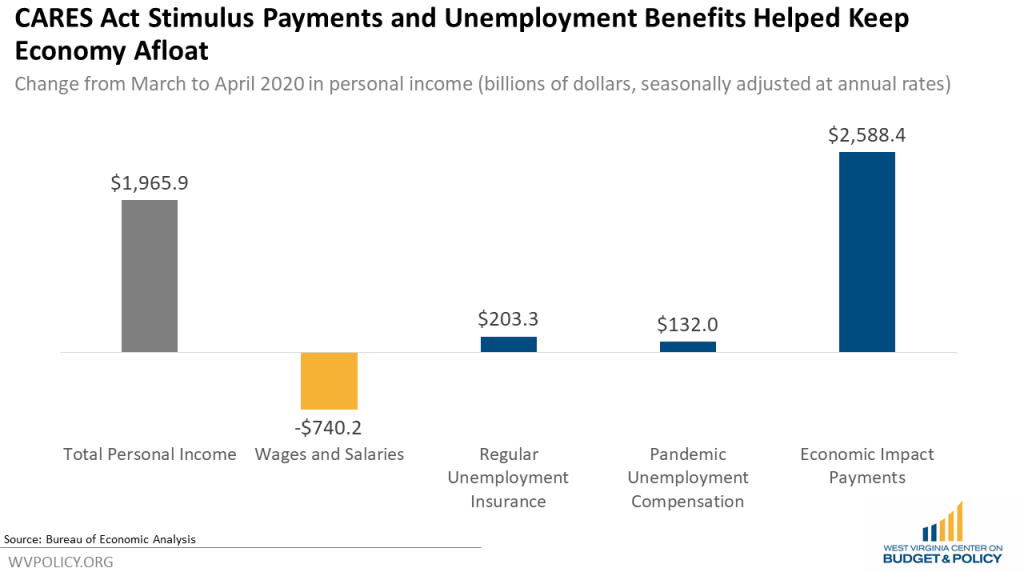
As the Justice administration ramps up testing in the state’s correctional facilities, Policy Outreach Director Seth DiStefano has provided research and recommendations on how the pandemic is impacting West Virginia’s incarcerated population.
Here is Seth’s quote in this week’s West Virginia Metro News article: “Between May 19 and May 26, 537 West Virginians were newly jailed, and corrections officers and staff come in and out of facilities every day,” DiStefano stated.
“We must complete testing with the same speed and concern with which we tested our state’s nursing homes so thoroughly, and we must stop jailing people who do not pose imminent safety threats.”
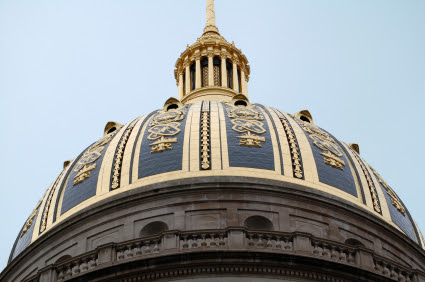
For all the talk of West Virginia’s comeback, the reality for families is still incredibly challenging. Parents can’t go back to work if they don’t have a safe place for their kids to go for child care. The success of our comeback will depend in part on mitigating the economic impacts of the COVID-19 crisis on child care providers, as the sector will play a critical role in our state’s economic recovery.
West Virginia’s child care capacity was limited prior to COVID-19 – both in terms of accessibility and affordability. There are approximately 68,736 children under the age of six in West Virginia who have all available parents in their household in the work force, meaning they will likely need child care. It’s important to note that these aren’t the only families who need child care during the day. Parents with other responsibilities and those with children older than six often need child care as well.
Read more in Kelly’s blog post.

For more information on the impact of the pandemic on West Virginia’s economy, safety net, unemployment resources, and more, please visit our special website page.

COVID-19 has forced the nation into an unprecedented emergency. The current emergency, however, results from a deeper and much longer-term crisis – that of poverty and inequality, and of a society that has long ignored the needs of 140 million people who are poor or one emergency away from being poor.
In 1968, Rev. Dr. Martin Luther King Jr. and many others called for a “revolution of values” in America and sought to build a broad movement that could unite poor and dispossessed communities across the country. Today, the Poor People’s Campaign: A National Call for Moral Revival has picked up this work. People across the nation have joined under the banner of the Campaign to confront the interlocking evils of systemic racism, poverty, climate change and ecological devastation, militarism and the war economy, and the distorted moral narrative of religious nationalism.
They are coming together to demand that the 140 million poor and low-income people in our nation – from every race, creed, gender, sexuality and place – are no longer ignored, dismissed or pushed to the margins of our political and social agenda.
Add your voice by attending the Mass Poor People’s Assembly and Moral March on Washington Digital Justice Gathering, on June 20, 2020.
The Poor People’s Assembly and Moral March on Washington will be an historic, generationally transformative digital event using the internet and the airwaves to drive the vision and agenda of our communities into the heart of the national narrative.
History teaches us that it is exactly in moments like these that a movement of the many is necessary to force the nation into action. In the midst of pandemic, economic collapse, climate change, and more, the key to real and lasting change lies within our communities – within our ability to come together in new and bold ways.
Register here.
